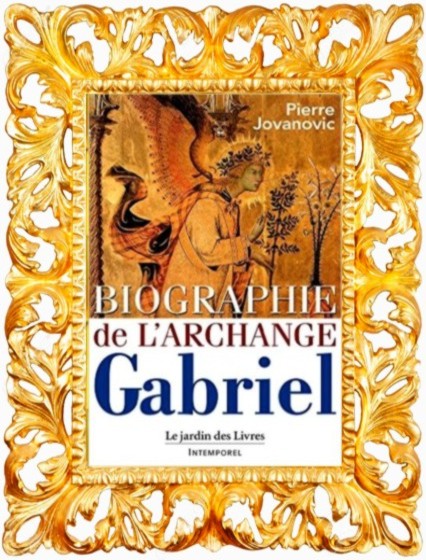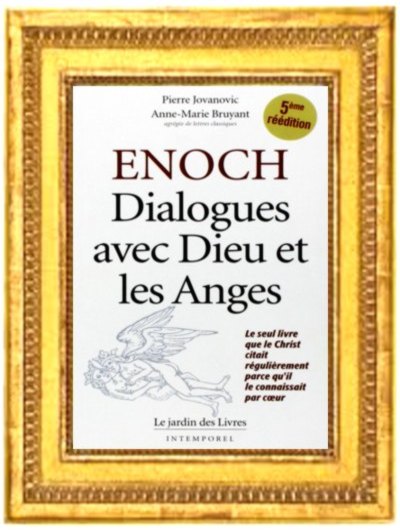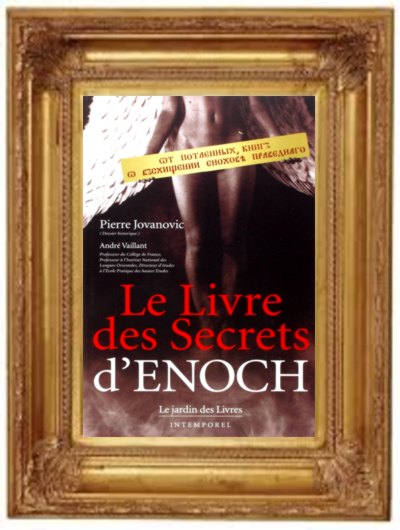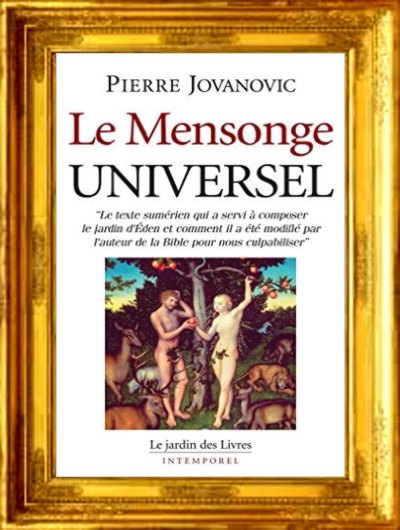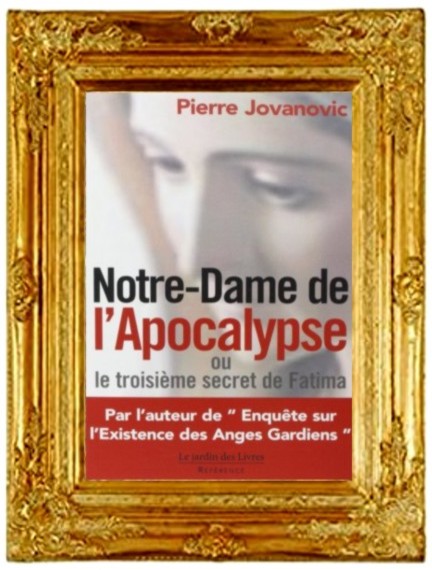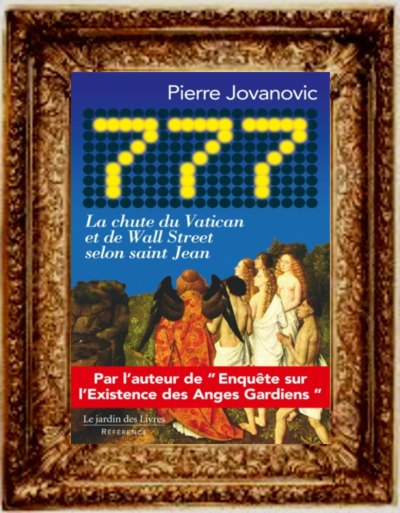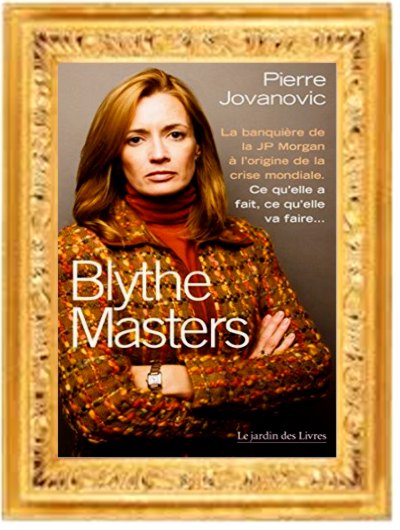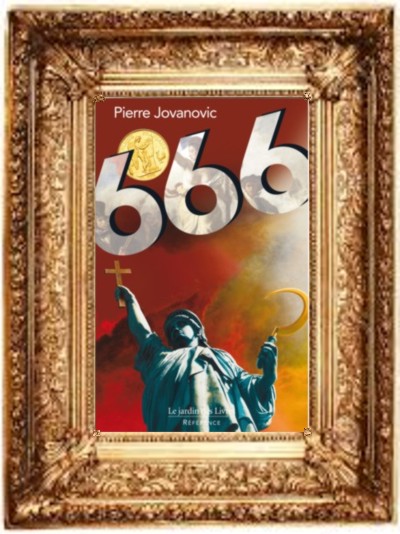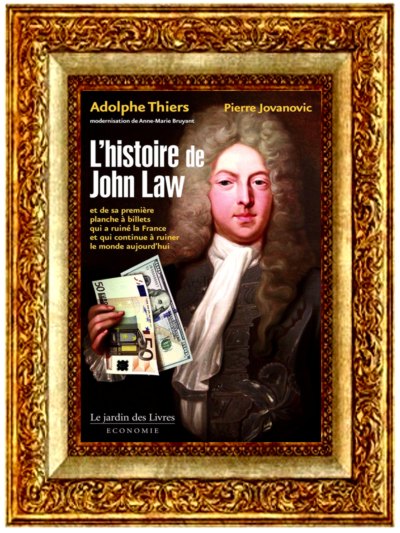
The original manuscript sent to the french publishers, and refused: "this is not the way one should write about angels"
I never believed in guardian angels and I certainly never saw one. The only thing on my mind was the amount of money the car rental company was going to charge me for the damage to the windshield. Baffled and upset, I needed to know how I escaped death. I began to read books on angels, trying desperately to understand what happened to me. The books left me unsatisfied. "They seemed like fairy tales: Everybody was nice, Angels were singing, etc. The writers didn't address real life incidents where people are killed and children are injured and Angels do not save them." So, I decided to investigate and write about the existence of Angels. My book, AN INQUIRY INTO THE EXISTENCE OF GUARDIAN ANGELS: A Journalist's Investigative Report, was a runaway bestseller in France, Italy and Spain. It is now available in the United States. The book combines interviews with academics, medical doctors, and specialists in Near Death Experience, first-hand accounts of the appearance of spiritual beings from adults and children, and Angelic accounts of saints, visionaries and stigmatics from the middle ages to the present.
I am sure you will enjoy reading this book. I received rave reviews from all who have read it. One afternoon in August 1988, at Fremont in the heart of Silicon Valley, I had just ended a visit to the assembly plant of Grid laptops. My lady friend and I hopped into our rental car, and after hunting for ten minutes or so we finally found Highway 880, to take us back to San Francisco. On the highway everything seemed normal and calm. It was a sunny day, and not being the driver I looked at the big rigs we were passing, so American with all their shiny chrome, and suddenly, without thinking, I flung myself to the left. One second later a bullet pierced the windshield, smack in the middle of the passenger side. My side. An hour later, with a statement (obligatory for the insurance) from the Highway Police, who assured us that it was a relatively common (sic) incident of sniper fire, I was wondering why I had flung myself to the left before the bullet hit the windshield. Later, while talking with other journalists, I discovered that I wasn't the only one to e xperience this sort of phenomenon. Other colleagues--reporters or press photographers--told me how at the very moment of inevitable death something inexplicable had saved their lives, some million-to-one shot. And most of them explained to me that time had suddenly stood still, and they had begun to see their whole lives unfold, as if "outside of time." An inexplicable phenomenon, so they tuck it away in a corner of memory. But the memory pops up again when some other person talks about such matters: "Listen, something just like that happened to me in Lebanon," or Iraq, or wherever. I too forgot. But then after an investigation of life after death, I couldn't help connecting near death experience with these anecdotes from reporters, photographers, and pilots saved in extremis by an unexplained voice or event. What they all had in common was either "time standing still" or their "lives unfolding in three dimensions," and sometimes both. So I dug deeper into near death experiences, or near life, if you prefer. An interview with the French Doctor Devawrin would convince me definitively: that physician had written his thesis in medicine on this subject from a particularly propitious observation post, the resuscitation unit at the hospital in Garches,11 which receives serious accidents from the belt highways that ring the Paris. To carry it further, I even proposed this topic during an editorial conference at the Quotidien de Paris, and it was accepted. This time, the inquiry into NDE became a prominent theme. I really wanted to know just wha t happened at the moment of death. After a few weeks of investigation, I was more than disturbed: accepting the principle of a life after death following this inquiry, I was confronted by a dilemma. If life did not cease with death, then the religious texts I had considered tall tales by bearded and boring old men were not so silly after all. I was plenty upset. Before that article, the Resurrection of Christ meant no more to me than a long weekend thanks to the Easter holiday. But in the end what do all these near death experiences represent, if not stories of modern resurrection? That bothered me so much that I did what everybody does, I preferred forget about it. It required too much thought, and Catholic dolorism--deep and constant meditation on pain and death--had always horrified me. But it all came crashing down on me again one night when I heard a song by Jean-Louis Murat about his guardian Angel. Stupidly I asked myself if I had a guardian Angel too, and the idea seemed as foolish as it was romantic. But less than an hour later, in a bookstore, I came across a book on Angels, entirely by chance. The topic piqued my interest, a purely intellectual interest, of course. But the deeper I plunged into the subject, the more the omens leapt out at me, in a chain of unlikely coincidences. That first question had lit the fuse of a bomb that would cost me a fortune in book money. Little by little I got the feeling that an invisible dialogue had begun between this supposed Angel and myself. A dialogue that Jung called synchronicity. It was not a matter of conversation in the strict meaning of the word, but more exactly of signs that make sense to you and no one else. Another example: one day I was walking home, trying to dismiss this angel busines s from my mind and I said to myself "I should stop believing in those stupidities. At that very second, a screeching of brakes broke into my thoughts. I had come within a hair of being run down. The truck stopped within six inches of by body. It was a florist's van. Its name: Michelangelo Florist; its make: Renault 4L, i.e., four wings. Unbelievable, to be run down by a MichelAngelo Florist at the very moment when I was, once again, trying to dismiss the idea that the Angels can exist... T he first time, you tell yourself it was only an accident. The second time, when someone gives you a book about the theme of Angels in art, you think it's a real coincidence. The third time, you receive a letter that begins "You are my guardian Angel" from someone you knew long before your sudden preoccupation, and you tell yourself that it's an incredible simultaneity. The fourth time leaves you speechless. After the tenth time, you surrender, and after the twentieth you start talking seriously to your Angel. From then on, the Angel's responses take you by surprise on a street corner, in a book, from a person or a letter or a phone call. I remember one day I answered the phone and at the other end a person I guessed was quite old asked me if she had reached the Church of Saint Mary of the Angels. I was dumbstruck... Later on the Angel falls into the permanent habit of "talking" to you, always by interposed signs. Sometimes Cartesian rationality calls you to order, and once again you wonder sincerely if you haven't gone mad, if you're not seeing signs and omens where none exist. You even begin to doubt your own mental health. And just at that point an even more impressive omen literally stuns you. Exactly that happened to me in 1990 at Las Vegas, where Paris had sent me to cover the Comdex, a great convention all about computers. More than ever I "doubted," thinking I was out of my mind. One morning I was walking along the "Strip" when a cross on a steeple caught my eye. This was my fifth trip to Las Vegas, but I had never noticed a church before. Just out of curiosity I approached, wondering what a church would be like in this capital of gambling and prostitution. When I read its name, "Guardian Angel Cathedral, Bishop of Nevada," I stood paralyzed for a full minute. Tur ns out it is the only church of that name in the United States.Still, the more the signs came to me the less I believed, stubbornly insisting that it was all pure coincidence. And yet one day I thought I had really gone crazy. In a secondhand bookstore I found a magnificent Latin missal of the 19th century, called the "Missal of the Angels." Wanting to date it, and especially to learn more about the author or authors of this illuminated work, I ask the archbishopric of Paris for the name of a librarian who might be able to shed some light on it. They offered the name of a monk, whose order I will not reveal here. By telephone he gave me an appointment for the following Sunday, after services. On that day, after a Mass celebrated by a priest who kept talking about Angels, I asked a monk to introduce me to Brother X. When he pointed him out to me, I discovered to my pleased surprise that it was the officiating priest, a man in his thirties with a smiling face and a slightly feminine air. He led me to his office , took the missal, examined it with a jeweler's glass, and gave me some interesting information, warning me that this volume was new to him. I was not much further along. WhenI tried to turn him toward Angels, Brother X stopped me. He rose, indicating the end of the interview, and told me, "Angels, apparitions of the Virgin and other such stupidities I do not believe in." It was the coup de gr�ce that I had unconsciously been awaiting; I slipped behind the wheel of my car wondering why I should believe in Angels when even an ordained priest did not. And yet somewhere (an odd term, that "somewhere": where?) this saddened me. I was attached, if not to my Angel at least to the idea of possessing one. And after that meeting it was as if he had vanished in a puff of smoke. It was the end of a beautiful, invisible friendship. But we don't shake off a guardian Angel so easily. That incident was a sort of boomerang, a revelation. The Angel behaves like a girl we have broken up with, who watches for us at the doorway of our apartment building. Three days later, as I left a restaurant where I had lunched with my friend Gerard Adamis and told him about the incident with the monk, the Angel awaited me, like a thunderbolt. I slipped into Gerard's Rolls-Royce and, as we started up a cassette slipped out of the stereo (why hadn't it slipped out on the way over? A mystery). I glanced at it mechanically and, stunned, I read the title "Saint Michael, the Archangel." To my question about the cassette's origin, Gerard Adamis answered that Sunday (and therefore the same day as my interview) after the Mass in Paris he had seen this cassette, a collection of sermons on the Archangel, and had picked it up for me, knowing my interest in the subject. But after hearing side A, fairly boring, he had forgotten to mention it to me. Out of curiosity, I switched it to Side B and punched Play. After some sounds of breathing, an energetic male voice filled the vehicle, and the first words struck me like a dagger. It was a direct answer to what th e priest told me, and in his very words! "I am not going to waste my time proving to you that there are angels," the voice declaimed. "Open the Holy Scriptures to any page, and the evidence is abundant; it took all the stupidity of the progressives to reduce them to simplistic notions and I have no time to waste over such stupidities". I never imagined that a priest would express himself so directly, calling his progressive colleagues "stupid." It was quite funny and yet rather surprising. Worse yet, the sermon came from the church of Saint-Nicolas du Chardonnet, Parisian fief of the traditionalists, a movement about which I felt more than doubtful. But this voice spoke of Angels with so much poetry, faith and certainty that I was left dazed. It was a truly strange situation. Gerard Adamis, as astonished and fascinated as I was, had parked the car in the shade of a locust tree so we could listen comfortably to this sermon, halfway between a course in philosophy and a course in theology. Doubtless, the brother's response had annoyed the "higher-ups;" doubtless it had made waves. The synchronicity of this event plunged us into deep reflection. The priest who was an expert on missals, a progressive, had used the word "stupidity."33 The priest on the tape used the same word in rebuking the progr essives. . . . I couldn't get over it. On the spot my faith in my own guardian Angel, which had dropped to zero, shot up. I had just discovered that Angels very much dislike being mistaken for wild dreams. But wild stories of this kind, whose synchronicity seems regulated to the precise second, can only be explained by the power of Angels, no doubt delighted that anyone really cares about them. And yet I was disappointed not to find a work that offered "proofs" of their existence. These books always consist of commentaries based on Biblical texts (when and where Angels appear in Scripture), or of reported testimonies ("I was saved by an Angel"), or of speculative writings (on the sex of Angels, of course), sufficient for those who have faith; but utterly insufficient for those who believe in nothing, and meaningless to those who would like to believe but require a sort of material, palpable "demonstration." In general, Angels are discussed either by the most nihil obstat sort of priests, or by New Age authors on channeling ("the Angel Saaoarvada told me that . . ."), or by cabalists (invocations of the Spirits of Goodness), or by unknowns who had an "angelic" ex perience, or by academics and theologians, for the most part abstruse. To understand their work one needs a dictionary of theology. They all adduce interesting details, but few give me the feeling that they could convince a harried businessman, or someone who was groping, searching, but had no desire to entrust himself to a priest. The position of the last-named is simple: "The Church says that Angels exist, so we must believe in Angels," according to the progressives who have not relegated them to the realm of outdated dogmas. Well, if there is any intellectual approach that gets my goat, it's that one: the Church says that . . . The Church has proposed so many stupidities that we've reached the point of disbelief. Besides, didn't they put the Grand Larousse Universel, one of the world's great encyclopedia-dictionaries, on their Index? So as a journalist I was looking for a book based on solid, strong foundations. But after much vain research, I had to yield to the evidence: that book did not exist. And yet my rational side insisted on finding material proofs of the existence of Angels and/or the testimony of people above all suspicion. Finally, after four years of reading in widely varied areas, I realized that I myself was capable of writing that book. But a problem rose immediately: how could I approach this topic from a journalistic angle, and conduct a multidisciplinary investigation, without making too much of a fool of myself as editor of a national daily? (I could imagine the comments of the press attach�s: "Oh, that's the idiot who believes in Angels," etc.) Another problem arose immediately: to be credible, this book must include many interviews in the United States, which would mean traveling all over the country. At just that moment Paris was sending me to California, which took care of the logistical problem. So I was able to meet with the most eminent specialists in Near Death Experiences, like Dr. Elizabeth K�bler-Ross, Professor Kenneth Ring, and Dr. Melvin Morse; and those on the various levels of consciousness, like Dr. John Lilly; on out-of-body experiences like Robert Monroe; and on Angels, like Terry Taylor; and complete the research I had begun in France. Cross-checking these various domains brought me original and enlightening insights on Angels, absolutely unexpected and unforeseen, and supplied rather extraordinary testimony, sometimes overwhelming proofs, as we shall see in the chapter "Mystics and Angels." I have only one hope: that the fruit of several years' impassioned research may reconcile the reader with his guardian Angel, who is awaiting exactly that. Indeed, many are those (never mind the Confession) who consider God too remote, too inaccessible, and who hold Him responsible for horrors and injustices. On the other hand, the idea of possessing our own guardian Angel tempts us all the more because he is our own and we don't share him with anyone (egotists that we are . . .), contrary to God, who belongs to everyone, and whom everyone invokes and brandishes for any reason at all. And that is why a relationship with our guardian Angel is the simplest to develop, the most intimate, and above all the m ost effective, for it immediately transforms, metamorphoses a life, spiritually as well as materially: a guardian Angel harbors an immense power, a power of which we have only a very vague notion. It was Philip Faure, speaking of the writer Rainer Maria Rilke, who summed up in a few lines the power of an Angel and what occurs when the two meet: "The Austrian poet's yearning for an Angel reveals itself when he comprehends the considerable distance that will separate man and Angel from now on, the full dimensions of which he intends to express: the celestial being is terrible, dazzling, and his encounter with man can only be violent. It only remains to arrange an encounter with one's guardian Angel. At first that promises to wring tears from us. But later everything meshes as if by a miracle. One discovery of those who keep up a privileged relationship with their guardian Angels: their humor. Angels love to play jokes, a variety of celestial jokes composed of unique paradoxes and synchronicities. For example, one day in March 1992 in Paris I telephoned Rene Laurentin, author of many books and a journalist with Le Figaro, to ask for some advice and addresses. He greeted me between two appointments and explained that he had met a painter, a woman, who drew only Angels. He couldn't quite remember her name because it had been three or four years before, but he did remember her agent, a certain Malerbe-Navare, who lived in a street close to the Luxembourg Gardens in Paris. He wasn't even sure of the spelling of that name. With a map of Paris and a Minitel (a computer directory), I plunged into my search for Malherbe, Malsherbes, Navare, Navarr e, etc. All my phone calls failed. They thought I was a lunatic: "Good evening, sir, excuse me, I'm a reporter from the Quotidien de Paris and I'm looking for a Monsieur Malerbe-Navare who knows a painter who draws only Angels. Is it by any chance you?" After half a day of trying, I gave up the notion of finding this mysterious artist. That night in Paris I had a phone call from Los Angeles, from my colleague and most of all my neighbor Emmanuel Joffet, who had undertaken the difficult task of caring for my 90-pound Old English Sheepdog, and who wanted me to visit his grandparents in Paris. Arriving at an apartment in the sixteenth arrondissement two days later, I was welcomed by a charming lady, Marguerite Bordet, who was herself a painter. Browsing in one of her catalogues, I discovered, rather wild-eyed, that it was she I had searched for so desperately via the name of her agent, Malherbe-Navarre Roger, two days earlier! The grandmother of my neighbor who lived 7,000 miles from Paris! It was unbelievable. We both had the feeling that the Angels had played an immense intercontinental joke on us. In short, after a few months' discussion with the Angel, we notice that all he desires really is one thing, a perfect communion with his prot�g�, since he knows his desires and problems better than anyone. The Angel does his best to fulfill desires, and in this "invisible" relationship I never felt anything but an immense complicity. And yet we read everywhere that Angels are only God's messengers, perfect and inhuman instruments, as it were, without feelings and without free will. Nothing could be more inaccurate, as the relationship between a guardian Angel and his prot�g� may be independent of God, which sets no problem because the role of the Angel consists precisely of bringing his prot�g� progressively toward God while respecting his free will. To believe in the Angel is already a tremendous step toward God. The French writer and poet Charles Peguy explained one day, in strict confidence, to his friend Joseph Lotte that he possessed an incredible guardia n Angel: "He's even shrewder than I am, mon vieux!" Peguy said. "I am closely guarded. I cannot escape his guard. Three times I've felt him grab hold of me, tear me away from desires, from premeditated, prepared, willed actions. He plays incredibletricks." And indeed, who has not heard a friend say, "You know, sometimes I have the feeling that I'm being watched over," or "you'd think Heaven was watching over me," or "By a miracle I never boarded that plane." People become aware of it but don't try to dig deeper, to explain this mysterious feeling, out of fear that they will make fools of themselves or, more rarely, lose that "protection" by trying to pierce the mystery. That's another curious phenomenon: the incredulity of one's peers. If you say to someone, "I believe in God," he won't think it abnormal even if he's an atheist. On the other hand, if you explain that you believe in your guardian Angel, he will stare at you goggle-eyed, as if you'd said, "I believe in Santa Claus." That has happened to me seve ral times, mainly in Catholic bookstores where, when I asked a saleswoman or the owner5, "What have you on the Angels?" All I got by way of answer was a smile of the "poor simpleton" variety, while in New Age or esoteric book shops they answered, "Yes indeed, right there behind you in the right-hand aisle." Still more curious is the reaction of practicing Catholics, above all the traditionalists, who, when you mention Angels to them, respond by throwing the Devil in your face: "Are you sure you haven't been led astray by the Evil One?", as if being interested in Angels rather than God demonstrated the formal proof of my diabolical possession. Aren't Angels the common denominator of the greatest religions? You find them in the Old Testament as well as the New; in the Koran; the Torah; and among the Hindus, who call them "the shining ones," the devas. Are they not also "the tools with which God amuses Himself and acts, by and with which He reveals eternal forces and wonders, and leads them in a game of love?" A bruptly my interest in Angels, those "immaterial beings, pure spirits, intermediaries between man and God," as the dictionary tells us, "who are to be at our side always, instructed to guard and guide us," was transformed into a relentless determination. When Dr. John Lilly, whose work with dolphins is world famous, tells us quite simply in his autobiography that he encountered his guardian Angel as a child and conversed with him, one may well pause for reflection. Similarly for Francoise Dolto, the celebrated child psychoanalyst, who has made no secret of the fact that she constantly asks her guardian Angel to watch over her. If these statements were made by unknowns, no one would pay any attention. But coming from John Lilly and Francoise Dolto, who had no reason whatever to talk nonsense, they can be explained only by unforgettable experiences. During an interview at his home in Malibu, California, Dr. Lilly--who had dealt more than once with these "beings," always in dramatic circumstances--told me, "I ca lled them Angels, but that's a hangover from my Catholic education. Today it would be more accurate to say 'Being from a higher plane than ours.'" And it doesn't bother old scientist at all that people may question his mental processes; after his work for the U.S. Air Force and the U.S. Department of Health, and above all after his observations on dolphins' systems of cerebral communication, he has nothing to prove to himself, and even less to prove to others, for what emerges from the whole of his experience is the sense that he is protected, a feeling perfectly translated by the expression "born under a lucky star." Well, is that just an accident? Nineteenth century engravings always depict the guardian Angel with a star shining from his forehead. But what does it mean to be born under a lucky star? Simply to be fortunate, to win at gambling or avoid accidents regularly, to emerge unhurt from a terrible crash or to survive an attempted assassination? How can we explain those absolutely unpremeditated actions that save one's life, those inner voices that warn us suddenly, that premonitory dream, that in sane series of coincidences causing a friend or a total stranger who had no business being on the spot at the crucial moment, to intervene and head off a catastrophe? A chance premonition, a stroke of luck, a coincidence? In French we often say, "Something tells me that" . . . But what is this something? Is it someone? No one is prepared to offer a natural and objective explanation of these phenomena. And once we accept so much as premonition, we open the door to other realities. And we cannot deny experiences lived by millions of people on the grounds that we cannot explain them materially and scientifically. Those who have lived such an experience are forever marked by that "help" surging up from nowhere, of which the most elegant explanation (as there is none more logical) can be summed up as a very real intervention by what is called a guardian Angel. But, to start with, do these Angels really exist? The answer is negative considering that we do not see them. On the other hand as soon as we collect data a mong the sick, or the victims of accidents, whose hearts have actually ceased to beat, the answer becomes positive. As we shall discover, the extremely vast and all perfectly documented domain of Near Death Experiences permits no doubt, because it was not charted by clergy or cultists, but indeed by some of the most serious doctors and academics of our era. Foreword by Betty J. Eadie CHAPTER 1 Of The Angels' Influence on Daily Life CHAPTER 2 Of Angels in the Tunnels (25 Cases of What we call "angels" in Near Death Experiences) 

|




